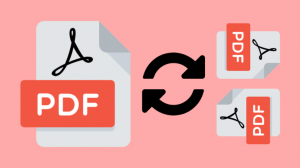Small businesses often grapple with numerous challenges in operations management. From limited resources and constrained budgets to the constant drive for efficiency, these hurdles can stifle growth and inhibit competitiveness. However, cloud-based business software can help provide flexibility, scalability, and cost-effectiveness in the face of these challenges. This blog will explore leveraging these cloud solutions to simplify operations and drive your business forward.
How Cloud-Based Business Software Works
At its core, cloud-based software is all about convenience and accessibility. Unlike traditional on-premise software, which requires installation on individual machines, external providers host these types of solutions on remote servers.
These applications can be accessed from any device with an internet connection, providing unparalleled flexibility for business operations. This means that employees can work on the road, at home, or in the office without the need for complex VPN setups or carrying physical files around.
Understanding the Benefits
Cloud-based software offers several benefits that can help streamline your business operations, including:
Improved Payroll Processing
One of the most significant benefits of small business software is how it streamlines payroll processing — a task often seen as complex and time-consuming.
Traditionally, tracking employee work hours would involve manual timesheets, which are prone to errors and can be a logistical nightmare. However, with timesheet software, the process becomes remarkably simplified. This software accurately captures work hours, eliminating the chances of human error and ensuring a fair, accurate payroll.
Additionally, the software can automatically calculate overtime, holiday pay, and other forms of compensation based on the data inputted. This eliminates the tedious and complicated task of manually calculating these figures, often leading to mistakes and inconsistencies.
Cost Efficiency and Scalability
Cost efficiency is a valuable benefit. Instead of a large upfront cost for a software license, cloud-based software typically operates on a subscription-based pricing model. This means you pay a regular, often monthly, fee for access to the software. This payment structure helps you better manage your cash flow and significantly reduces the financial barrier to entry for utilizing high-powered software.
The subscription model also provides a high degree of flexibility, enabling businesses to scale their usage up or down based on their current needs. For instance, if your business is experiencing rapid growth, you can easily increase your software usage to accommodate the expansion. Conversely, you can reduce your usage during slower periods to save costs. This scalability is a significant advantage over traditional software solutions, which often require businesses to purchase additional licenses or hardware to increase their capacity.
The automatic updates feature is another key characteristic that makes it attractive for small businesses. Traditional on-premise software requires manual updates, which can be time-consuming and technically challenging. With software, updates are carried out automatically by the service provider, ensuring you always have access to the latest features and security measures. This saves time and reduces the need for in-house IT expertise.
Enhancing Collaboration and Flexibility
With software, you can facilitate seamless collaboration among team members. With these tools, you can break down the barriers of geographical location and time zones. Features like real-time editing and document sharing allow team members to collaborate on projects simultaneously, regardless of where they are. This speeds up the process and ensures that everyone is on the same page, reducing the chances of miscommunication or misunderstanding.
As mentioned before, flexibility is another key benefit. Staff members can work from anywhere, whether it’s from the comfort of their homes, a coffee shop, or halfway across the world. This supports the growing trend of remote work and flexible schedules, which has been shown to improve work-life balance and employee satisfaction.
Streamlining Operations with Integrated Solutions
One of the most significant advantages is integration capability. This feature allows for seamless data flow between various business functions, such as sales, finance, and customer support. The result is a unified, coordinated system where information is shared instantly and automatically, eliminating the need for manual data transfers between disjointed systems.
For example, when a sales representative finalizes a deal, the details can be automatically inputted into the finance system for invoicing and revenue tracking. Similarly, any customer issues reported to the support team can be instantly logged into the customer relationship management (CRM) system. This integration ensures that all teams have access to up-to-date information, fostering better decision-making and coordination.
Another key benefit of these integrated solutions is automating routine tasks. Tasks such as data entry, order processing, and invoice generation, which are traditionally time-consuming and prone to errors, can now be automated. This automation not only reduces staff workload but also minimizes the occurrence of mistakes that can arise from manual data entry.
Improved Data Security and Compliance
A common misconception is that cloud-based software is inherently less secure than on-premise solutions. However, reputable cloud providers prioritize security and implement stringent measures to protect their clients’ data. These measures often include advanced encryption methods to secure data both at rest and in transit, ensuring that sensitive information is unreadable to unauthorized individuals.
Additionally, regular security audits are conducted to identify and address potential vulnerabilities. These audits are carried out by dedicated teams of cybersecurity experts who continuously monitor the system for suspicious activities and breach attempts, providing an additional layer of protection that many small businesses may not be able to implement on their own.
Software solutions can also simplify the process of adhering to regulatory requirements. For example, many cloud systems include features for automatic data backups, which are essential in complying with data protection and disaster recovery regulations. They also provide user access controls, allowing you to designate who can access specific data so you can prevent unauthorized access and maintain data privacy.
Conclusion
Cloud-based business software is a cost-effective way to simplify operations and provide a secure and compliant environment for data management. When searching for a solution, consider your options and find one that suits your business needs while providing the best value for your money.
Follow Techrado for more!





